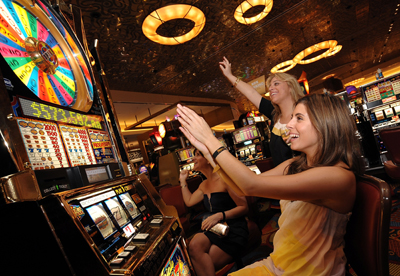
Gambling games have enthralled enthusiasts for ages, drawing them into a realm of excitement, chance, and wealth. From the flashing lights of video slots to the tactical intensity of poker tables, these experiences offer a special combination of amusement and risk. However, below the surface of this glamour and finesse lies a intricate interplay of calculations that determines every conclusion and decision made within the gambling establishment.
Understanding this link between gambling games and mathematics not just enhances the player’s journey but may also help gamblers make informed decisions. Whether you are a occasional gambler or a passionate enthusiast, recognizing the mathematical principles at play can provide valuable understandings into likelihood, ratios, and tactics, ultimately influencing how one tackles these chance games.
Arithmetic Probability in Betting
In the world of casino activities, statistical likelihood plays a critical role in determining outcomes and guiding gambler choices. Each activity has a specific set of rules and a specific probability model that shapes its dynamics. For example, in activities like the roulette wheel, players must grasp the odds of hitting a particular digit or color. The probability of certain occurrences happening can be assessed, and this knowledge can substantially affect betting strategies.
Gambers also need to be informed of the house edge, which is the statistical benefit that gambling establishments hold over gamblers in the long run. This edge differs across different games. In 21, skilled players can use strategies to minimize the house edge to as low as 1 %, while in activities like slots, the house edge can be much higher. Understanding the casino edge allows gamblers to make wise decisions about which games to play and the amount to bet.
Moreover, likelihood is fundamental in the principle of risk versus reward in gambling. Every bet carries a particular risk level, and players must assess the possible return against that risk. Activities like poker require gamblers to not only calculate the odds of their personal hand winning but also to evaluate the probabilities of their opponents’ showings. By applying mathematical concepts to their strategy, players can enhance their odds of success and participate more effectively in the thrilling realm of gambling activities.
Expected Worth in Casino Games
When discussing casino games, one of the fundamental ideas rooted in math is the expected value. This statistical metric helps gamblers grasp the possible results of their wagers over time. In simple terms, expected value (EV) calculates the average amount a player can anticipate to win or lose per wager if they were to play the activity many times. Each activity has its unique EV, influenced by the odds and the house edge, which signifies the benefit that the gambling establishment holds.
For example, consider a game like roulette. The expected worth can be derived based on the specific bet placed. If a gambler bets on a single number, the payout is 35 to 1, but the true chances of success that wager are 1 in 37 (in European roulette). This results in a negative expected value, showing that, on the whole, players will incur a loss money over a period when playing this type of wager. hit club Grasping this concept allows players to make more educated choices about which games and bets may be less advantageous.
Moreover, the investigation of expected value can lead to improved bankroll management. Players who understand the math behind their activities are often able to set realistic goals. By acknowledging their possible deficits and gains, they can adjust their playing strategies accordingly, which may enhance their total gaming experience. As a consequence, expected value serves as a critical tool for both beginner and seasoned gamblers to steer through the often volatile nature of gambling activities.
Strategies and Chances: The Mathematics Behind Winning
In casino games, understanding the chances is crucial for players attempting to boost their likelihood of success. Each game has its own distinct set of probabilities that dictate winning performances, and these numbers are often found in the gaming guidelines or reward charts. For instance, in activities like 21, participants can boost their odds through strategies such as card counting, which relies on mathematical principles to gain an advantage over the house. By educating themselves with the chances, players can make more educated decisions on when to place bets and when to fold.
Additionally, the principle of expected value holds a major role in gaming tactics. Expected value calculates the average outcome of a bet over time, allowing participants to evaluate whether a particular wager is worth taking. For example, video slots have a set return percentage, which can suggest the expected payout a gambler can anticipate on their bets. By choosing games with higher average outcomes, players can lessen the house edge, boosting their possible rewards in the future.
Lastly, successful gamblers often utilize a blend of chance and calculative tactics to enhance their gaming experience. While chance can’t be controlled, managing a wagering approach based on calculative ideas can lead to more advantageous situations. By employing techniques such as bankroll management and game selection, players can utilize math to navigate the unpredictable nature of casino games, making the most of their time and investments at the tables.
